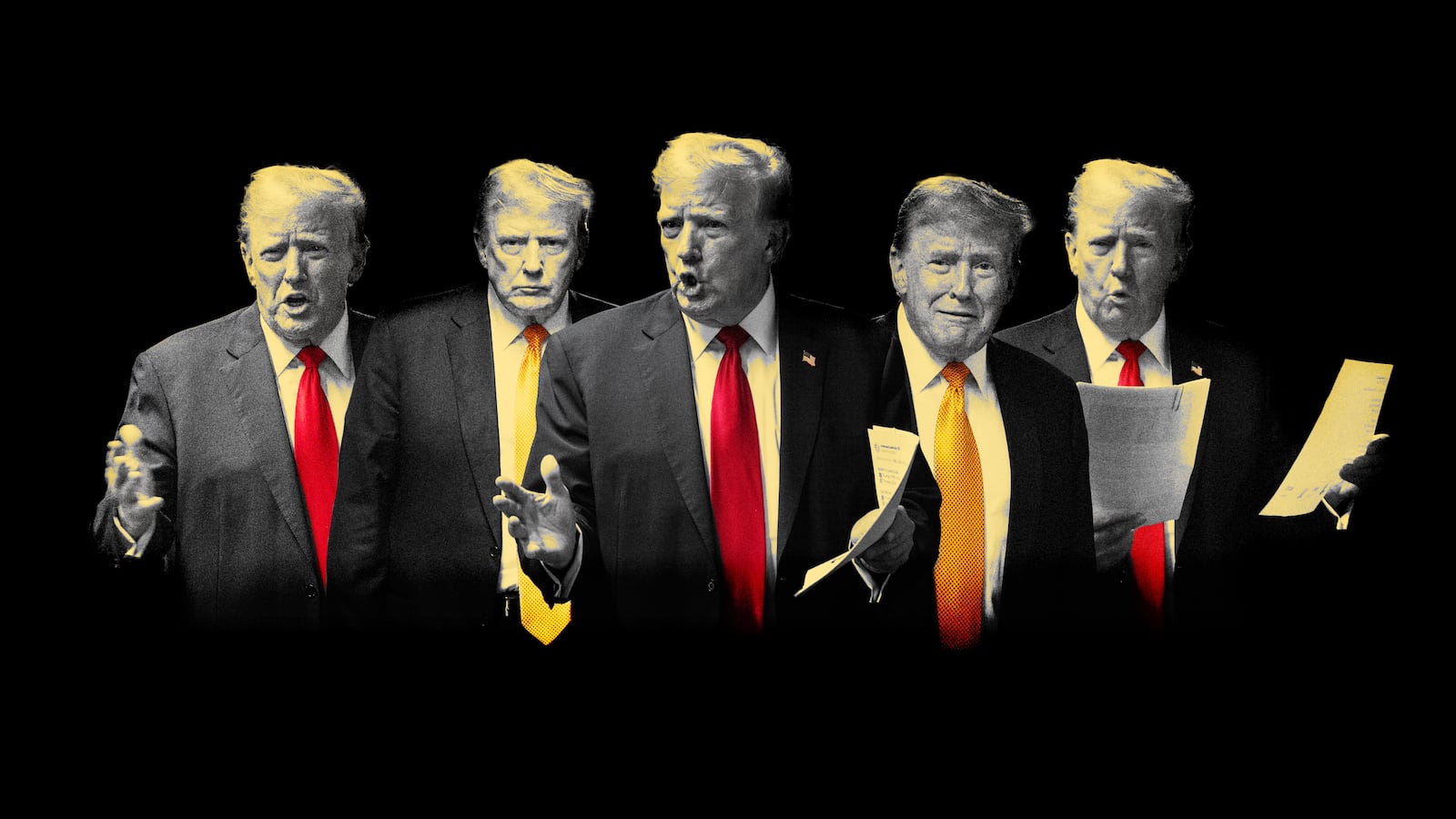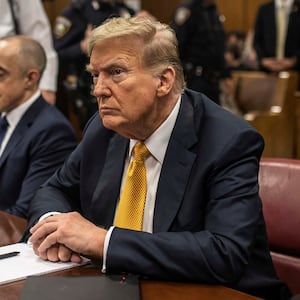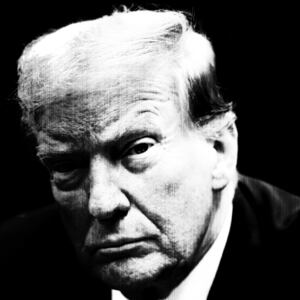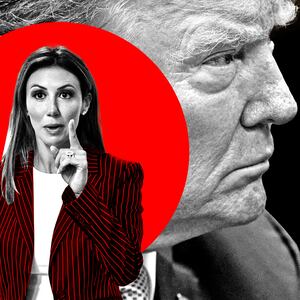After hearing testimony from 22 witnesses across 16 trial days spanning five weeks, the defense and prosecution have rested in the criminal trial of Donald Trump. Most legal experts agree: Trump is in big trouble here.
The prosecution’s case alleges Trump approved a hush money payment to Stormy Daniels, because he was worried that it would cause a catastrophic scandal—and sink his election prospects in 2016—if the public found out about his affair.
These charges are a big deal, both because of the alleged criminality and because of the ramifications Trump’s actions may have had on the election.
There have been skeptics, though. Some commentators have accepted Trump’s spin that the trial is a waste of time or a partisan witch hunt, but they have ignored the damning evidence presented and the greater implications of his conduct. Their challenges to the case’s legitimacy are false and misguided, and allowing Trump to control the narrative is a disservice to the American people.
There have been five broad criticisms of the case.
One criticism is that the prosecution is political. To a degree, this is true.
After all, this case involves Trump, the former president and inevitable 2024 Republican nominee, who may be the most divisive political figure in American history. It would be impossible to dispel politics entirely from such a case. And yes, the district attorney is a partisan elected official, as state law provides. That reality, however, is not unique to this case. It would apply in most criminal prosecutions of a current or former politician because in most states, voters elect local prosecutors in partisan races, and partisan presidents appoint federal prosecutors. Criticism of the case as political conflates the fact that it involves politicians with the notion that it is motivated by political ends.

Former President Donald Trump appears in court with his attorneys Emil Bove (L) and Todd Blanche during his trial for allegedly covering up hush money payments at Manhattan Criminal Court on April 25, 2024 in New York City.
Mark Peterson-Pool/Getty ImagesA second criticism is that Trump is being selectively prosecuted. That allegation is demonstrably false on multiple levels.
New York state often charges business record violations. Since 2015, there have been nearly 9,800 cases filed for first degree falsification of business records. Each of those cases involved an allegation that the falsification occurred in connection with an intent to commit or conceal a different crime. Those are exactly the same charges as the 34 counts against Trump.
A corollary of the selective prosecution argument is that prosecutors were intent on finding a way to charge Trump. Trump is facing four criminal cases in four separate jurisdictions. But is he a modern-day Nelson Mandela, as he claims, who has been unfairly persecuted because of his political positions? Or has he simply participated in four (or more) criminal enterprises deserving of prosecution?
Evidence suggests the latter. Trump has a long history of alleged and confirmed illegality: allegations of racial discrimination in violation of the Fair Housing Act in the 1970s; controversial bankruptcy filings in the 1990s; the Trump University fraud; numerous sexual misconduct allegations (including a jury’s finding that he abused Jean Carroll in the mid-1990s); two impeachments; the recent civil fraud verdict against Trump and other Trump Organization executives; and the four current criminal cases covering conduct before, during, and after his time in the White House. Given Trump’s proclivity for bending and breaking the law—the breaking confirmed by multiple verdicts—he would appear to be far closer to an Al Capone than a Mandela.

Former Donald Trump attorney Michael Cohen departs from his home to attend his second day of testimony at Manhattan Criminal Court on May 14, 2024 in New York City.
David Dee Delgado/Getty ImagesA third attack on the case is that Trump’s conduct, even if true, is not a crime. That criticism is objectively false.
At the risk of stating the obvious, the laws he’s alleged to have broken are, in fact, laws on the books of New York. Trump’s very capable attorneys sought to dismiss the indictment by arguing that his conduct did not constitute a crime, and the court appropriately rejected those arguments in a thorough and well-reasoned opinion. Trump will likely appeal that ruling, but he is likely to lose, just as his other attempts to halt or throw out the case have failed: because his conduct, if proven beyond a reasonable doubt, is criminal.
A fourth criticism is that Trump could have done what he did legally. This is somewhat true but ultimately beside the point.
Trump could have personally entered into a hush money agreement with Stormy Daniels to hide his affair from voters rather than having his fixer Michael Cohen do it through a shell entity and falsify the paper trail of reimbursement. But he did not do this, and we know why.
The legal route would have meant disclosure under federal campaign finance laws, which requires identifying all campaign contributions and expenses. Disclosing a $130,000 expense to an adult film star would have raised red flags, especially if there was a contemporaneous $130,000 contribution from Trump, which is precisely what Trump was aiming to avoid.
Finally, critics contend Trump’s crimes were unnecessary, in that no one would have found out about the October hush money payment until after the election based on the timing of the campaign disclosures. That, again, misses the larger point.
Trump entered into a similar hush money arrangement to hide his (alleged) affair with Karen McDougal on Aug. 5, 2016. Had it been properly documented as a campaign contribution and expense, voters would have likely learned about it before the November election. Had Trump disclosed the Daniels payment, even if it surfaced after the election, it would have revealed the earlier McDougal payment improperly concealed from voters. In order to hide both of his (alleged) infidelities from voters, Trump had to omit both from his campaign disclosures.
Although we can imagine an alternative reality where Trump managed to keep both secrets from voters without breaking the law, that’s not the path he chose.

Former President Donald Trump attends a charge hearing with his defense lawyers Emil Bove and Todd Blanche and prosecutor Matthew Colangelo before Justice Juan Merchan in Manhattan state court in New York City on May 21, 2024 in this courtroom sketch.
Jane Rosenberg/ReutersWhile these objections to the case are invalid, it’s understandable why some people are struggling to accept the validity of the case and instead are inclined to believe the prosecution is motivated by political ends to hamper his attempt to regain the presidency. That is because Trump’s alleged crimes appear to be a series of unforced errors. It’s easy to think of how Trump could have handled things differently, which can make it difficult for reasonable people to understand why Trump did what he did.
But that’s not the reality of who Trump is. Trump has proven himself to be a reflexive criminal: someone whose natural reaction to a variety of personal, business, and political situations is often to do whatever he wants regardless of whether it’s appropriate, ethical, or legal. Quite simply, he believes the rules do not apply to him, so he does not adjust his behavior to comply with the rules like the rest of us do. But the notion that falsifying business records over a $130,000 campaign finance violation was not well thought out does not mean it is not deserving of prosecution.
Skepticism about this case overcomplicates something that should be simple. As a nation, we pride ourselves on the principle that no person is above the law. If this is true, no one can be exempt from facing the consequences of their actions, no matter how famous the perpetrator, how unnecessary the crime, or how politically inconvenient the prosecution may be.
It also ignores perhaps a more important point: that the American public is entitled to want leaders who revere the law—who bend over backward to uphold the law, even when doing so may be inconvenient to their personal ambitions or political agenda.
We should demand candidates who epitomize the best angels of our nature. And our democracy affords us the right to know whether someone accused of committing any crime is guilty of that offense before we evaluate their worth to serve in office.
Pursuing that ideal is neither a waste of time nor a witch hunt. Indeed, it’s as American and righteous as it gets.










